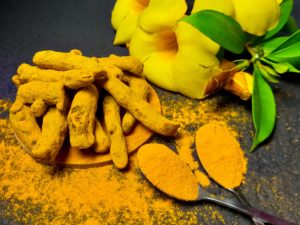Your Amazing Gut Microbiota and You – Why Gut Health Matters
It cannot be stated enough; your gut health matters so much. You and the gut microbiota form a relationship that benefits both of you. Without gut health, almost every aspect of our health goes down the drain.

Keep reading to find out exactly what your gut microbiota is, its purpose, and the benefits it offers you. Plus, find out signs of an imbalanced microbiome and what you can do to help support that health with ease!
What is Your Gut Microbiota
What exactly is your gut microbiota? The human microbiome comprises millions upon billions of microorganisms living within the gastrointestinal tract. Some organisms we acquire when we’re born, and some come to us later in life. When gut microbiota is balanced, this community of microorganisms helps us every single day.
Purpose
The relationship between us and our gut is one of mutual benefits. We house these organisms and in turn, they help us do so many things. Organisms are responsible for creating hormones, and vitamins, and absorbing nutrients like iron and calcium. Others help to regulate the gut barrier which also helps us properly digest our food.
Why Gut Health Matters So Much
When our gut is unbalanced, there are many negative consequences. This is because the gut microbiome is involved in so many important biological processes in the body. This ranges from our immune system, digestion, metabolism, brain health, and more.
Mental Wellness
We may feel sad more often if our gut health is lacking. This is because about 90% of serotonin and 50% of dopamine, happiness hormones, are created in the gut. Our gut is also part of a direct line of communication due to the neurons located there. Neurons are the cells usually found in the brain. The gut microbiome relays information about our nutrition and food quality directly to our brain.
Nutrition
Speaking of nutrition, here’s another reason why gut health matters so much. The gut microorganisms help us produce B vitamins, vitamin K, and short-chain fatty acids. These are nutrients essential for health. K vitamin is particularly useful since it is involved in blood clots which allow us to heal from injuries and prevent excessive bleeding, as well as playing a role in building strong bones and aiding in the production of protein. B vitamins are needed for our body to feel okay. They are involved in creating energy, the formation of red blood cells, and helping our nervous system to function properly. B vitamins are also needed for the health of our skin, hair, and eyes.
Physical Health
We may notice we are getting sick more often. This is because a lot of our immune response originates in the gut. Aside from that, growing research has found that the gut plays a big role in our physical health in terms of strength-building and fitness. An imbalanced gut can cause our muscles to not be repaired properly. If anyone is trying to gain strength, we need our muscles to undergo work and then recover. Without recovery and repair, there’s no way to build strength and increase fitness.
Plus, remember that the gut microbiota helps with the production of vitamins that boost our energy. Without energy, how are we supposed to progress on our fitness journey? Want even more information about gut health and its relation to mental and physical wellness? Check out this article here!
Signs of Gut Imbalances
So, knowing everything you do about why gut health matters so much, it seems very important to help support it. However, what are the signs of an imbalanced gut?
One of the first things that happens when there is an imbalance in gut health is that you may experience chronic bloating or an upset stomach. These are physical signs of issues in the gut. You may also start to develop more food and tolerances and your weight May change. This can mean increasing or decreasing in weight as both may be caused by an unhealthy gut.
Aside from that, you may become more irritable, anxious, and depressed. You may start to feel sleepier, less energized, and tired as well. Other issues may pop up such as skin conditions like eczema, dermatitis, or rashes. Without a healthy gut, we cannot adequately absorb nutrients, create hormones, fight off infection, or heal.
How to Support Gut Health
Here are some things you can do to support gut health. This includes foods you should avoid and food you should consume more often.
What to Eat
At the end of the day, we can support a healthy gut by eating a large diversity of food. This means eating the rainbow and consuming a lot of fruits and vegetables of various colors, shapes, and sizes. Try new things, eat healthy fats, get your proteins from good quality grass-fed sources or plants, and try to reach for whole foods.
You may also want to increase prebiotics and probiotics in your diet. Prebiotics are fiber-rich foods that feed our gut bacteria while probiotics are fermented foods that colonize our gut bacteria. Examples of prebiotics include potatoes, oats, apples, flax seeds, avocados, and onions. Some examples of probiotics include Greek yogurt, kombucha, sauerkraut, and kimchi.
What to Avoid
To support gut health, you’re going to want to avoid overly processed foods that contain additives and other chemicals that may negatively impact gut health. Try to reach for whole foods whenever possible. Limit your consumption of alcohol as well, since alcohol is detrimental to gut health. Only take antibiotics if you are prescribed them. Antibiotics kill off all bacteria, good and bad, which means they can help you while harming your gut.
The Takeaway
Knowing why gut health matters so much can help us take steps to improve it. Microbiome health is related to many aspects of our overall wellness including metabolism, digestion, immune response, mood, and more. Try to watch out for the signs of an imbalanced gut and make sure you are eating and doing things that help support gut health every day.
Remember that health comes from within. Eat nutritious food, exercise when you can, and take care of your mental health. The small daily habits you cultivate become the basis for overall wellness. Plus, get all the resources you need about microbiota health for free here!





